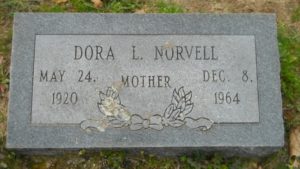 Vol. 19 No. 06 | February 6, 2017
Vol. 19 No. 06 | February 6, 2017
Gas prices change at irregular intervals. There seems to be no rhyme or reason to the changes. Gas prices go up and go down, sometimes multiple times during a twenty-four period. In our area, you can drive down the road and the price of gas will fluctuate as much as ten cents higher or lower. This varies from week to week, depending on which location you go to. If a gas line is ruptured in Alabama, the price of gas in areas near us will go up, and some will not. Economists try to predict what will happen with gas prices, and sometimes they are right, and sometimes they are not. There seems to be little consistency.
Politics is as inconsistent as gas prices. Whoever is in a position of leadership determines the protestors and the supporters. The amount of power of the president is dependent upon which political party has control of the various branches of government. Even then, it seems that the bill he signs or does not sign can cause a shift in those who are supporters and those considered the opposition. Political analyst try to predict how politicians will act or react and how the constituents will respond, sometimes they are right, and sometimes they are not. There seems to be little consistency.
The weather, particularly during this season, is almost impossible to predict. We get frustrated with, amused with, and sympathetic towards those who have the task of making accurate predictions. Temperatures on some winter days are more like early spring or late fall. Predictions of light snow are overturned with a slight shift in the jet stream that produces several inches (and of course global warming must also be factored in). Predictions of heavy snow excite children, only to disappoint them when the jet streams moves just a degree or two in one direction or another. Forecasters, using all of their advanced technologies, do their best to make predictions that are as accurate as possible, sometimes they are exactly right, and sometimes they are not. There seems to be little consistency.
Jesus! Ahhh, Jesus! Jesus is someone who you can know, with absolute certainty, is consistent. We can consistently depend on Jesus. Jesus offers us something solid to hold on to. Jesus provides us with a tangible understanding of consistency. The writer of the Hebrews encourages the followers who were weary of the inconsistencies of living the holy life in a very hostile world with these words. “Jesus Christ is the same yesterday and today and forever. Do not be carried away by all kinds of strange teachings.” (Hebrews 13:8, NIV)
Sometime today I will fill my car up with gas. Before I go, I will check an app on my phone to see who has the cheapest price in my area.
Several times within the next twenty-four hours, I will get updates on all my devices or scan comments on social media that are giving details and opinions on the latest decisions coming out of the White House.
Before I leave the house, I will check the weather to see if there will be rain, sunshine, or clouds.
The sources that provide me with information about gas prices, politics, and the weather are useful and as dependable as ‘humanly’ possible. I am blessed to have these many tools at my fingertips to help make life more predictable and easier to manage.
Jesus, however, is always on target. His Word is always right. His predictions of what will happen to those who follow Him are true. His projections for those who do not follow Him are solid. He is never surprised by the price of gas, the actions of politicians, the weather, or anything else that happens in our world. When we turn to Him for direction, for wisdom, and for strength, He always comes through with exactly what we need.
As you face the inconsistencies of day-to-day life, use whatever is available to help you live the best life you can live. But more than anything or anyone else, keep your eyes and your heart focused on Jesus. He is the one you can depend on all of the time. “He is the same yesterday and today and forever.”
Therefore, since we are surrounded by such a great cloud of witnesses, let us throw off everything that hinders and the sin that so easily entangles. And let us run with perseverance the race marked out for us, fixing our eyes on Jesus, the pioneer and perfecter of faith. For the joy set before him he endured the cross, scorning its shame, and sat down at the right hand of the throne of God. Consider him who endured such opposition from sinners, so that you will not grow weary and lose heart. (Hebrews 12:1-3, NIV)
Tom
A Norvell Note © Copyright 2017. Tom Norvell All Rights Reserved.









